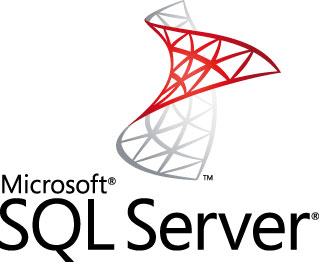 Katlyn Graham: Hello. I'm Katlyn Graham, here with Mark Kandilakis, Technical Consultant for Community Hospital Advisors. Welcome, Mark.
Katlyn Graham: Hello. I'm Katlyn Graham, here with Mark Kandilakis, Technical Consultant for Community Hospital Advisors. Welcome, Mark.
Mark Kandilakis: Hello!
Katlyn: Hello. Thanks for joining us today for this podcast!
Mark: You're welcome. It's good to be here.
Katlyn: We're excited to tap your expertise on Paragon, the health information system. Today, we're discussing the benefits of a hospital choosing a Microsoft‑based health information system, such as Paragon.
Mark, you're very familiar with this. Could you explain for others, who might not be quite as familiar, what you mean by a Microsoft‑based system?
Mark: Sure. Essentially, a health information system such as Paragon that uses a platform of Microsoft software such Microsoft SQL Server, or Microsoft Window Server.
Essentially, these are the underlying platforms or technologies that this particular HIS system is built on.
Katlyn: Paragon?
Mark: Correct.
Katlyn: That makes it simple. What are some of the best reasons for a hospital to choose Paragon?
Mark: Great question. I believe that one of the most important aspects is cost. A lot of hospitals already have an enterprise agreement with Microsoft.
They own the licensing for the database platform, SQL Server as well as Windows and whatnot. That takes a lot of the initial cost out of implementing an HIS system. Another benefit would be ease of views as far staging and configuring the hardware and software since a lot of these IT departments already have those systems in place. They already have expertise in dealing with them. That takes away a lot of the barrier as far as implementing and staging is concerned.
I think also supportability, going forward, you have skill sets in place in your IT department to actually come out and deal with troubleshooting and issues that may arise without having to involve the vendor. It also frees you from the handcuffs of the vendor. You're not exclusively tied to, in this case, for Paragon McKesson to assist with support. You can take a lot of that, own a soft at their plate, and you can support and troubleshoot on your own.
Katlyn: Because it's a Microsoft‑based system?
Mark: Correct, yeah. In regards to already having experts in your staff and the wealth of information that is currently on the Internet in different knowledge bases or whatnot.
Lastly, it allows for easier add‑ons or customizations to your HIS system, in this case, Paragon from third‑party vendors. They're able to more easily create or give you the ability to use third‑party tools or applications without, once again, having to involve the vendor.
Katlyn: OK, it allows you to really specialize and individualize what you're doing. That's interesting how you say a lot of your in‑house IT people will have training and be familiar with this. That's interesting.
I've heard from some other people who say, it's a big culture change for doctors and nurses to take this on. But that's another side of it, the IT side, so that's good to hear from...now, once the hospital goes live with Paragon, what are some of the benefits after Paragon is live.
Mark: I think I mentioned supportability and that is a very important one. Once again, you have the resources in‑house. There's familiarity already with the products, it's just a lot easier to maintain and support moving forward.
That takes a lot of the anxiety away from IT departments where they're not as dependent or reliant on the vendor. And also, recordability. Because it's built on a Microsoft sequel‑server, it's easy to use off‑the‑shelf recording tools to write your own customized reports. This is a great benefit to a lot of hospitals.
Katlyn: OK, they can get their reports. And what was the other long‑term benefit that you just mentioned.
Mark: Supportability.
Katlyn: Supporting, OK. That all sounds great. Are there any negatives to a Microsoft‑based system?
Mark: I think the biggest negative in my opinion would be stability.
By going to a Microsoft platform where you're now dependent on SQL Server or Windows, it opens the opportunity for there to be issues with those underlying platforms or systems that aren't specifically centered around the actual HIS application.
In that regard, I think that some of the proprietary systems, the closed systems, are a little bit more stable. But I think as time goes on that goes away. That would be in my opinion one of the negatives.
Katlyn: As time goes on, the positives way outweigh the negatives, it sounds like.
Mark: I agree.
Katlyn: Thank you so much for explaining that, Mark.
Mark: Oh, you're welcome.
